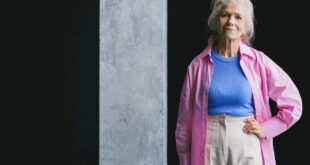By Mike Milstein
Miles Hursthouse lived in Hastings until, at 16, he left to study law at the University of Auckland. When WWII was declared he was in the artillery of the Territorial Army for 5 years, first in NZ and later overseas in the Pacific area with the NZ 3rd division. After that he attended medical school in Dunedin. Upon graduation in 1950, he married his long term fiance Jillian, now his wife of 59 years, and moved to Wellington where he worked in Wellington Hospital for a further 2 years.
They settled in Nelson in late 1952, partly because they wanted to live in a medium sized town, enjoy navigable waters, and have mountains and hills to climb; and partly because Miles’ forebears settled here in 1842. His uncle was the first mayor of Motueka and his great grandfather, J. W. Barnicoat, attended the first service on Church Hill.
Miles was a general medical practitioner in Nelson for about 20 years, spent 3 years post graduate work in Australia, nd returned to Nelson to establish a dermatology practice for another 20 years.
Coming up on 90 Miles remains fully engaged in life. He is a founding member of the Nelson gliding club where he still retains rated instructor status and flies regularly, has loved motor sport, riding motorcycles, especially his Vincents, which type set world records, owned a glider with several friends, and has hiked and trekked throughout New Zealand.
What’s the secret of Miles’ healthy longevity? He gives much of the credit to his long-lived family. “My father was 103 when he died, I had an aunt who died at 103 and my mother died at 90. She was quite young, really!” However, he realizes that while that provided a solid foundation, he needed to live his own life and do it in ways that would promote well being. For him this includes:
- Living with passion. “My father was very interested in fishing and rabbit shooting. I followed in that. I did competitive shooting at the university and a lot of rabbiting to help myself through medical training.”
- Trekking. “There are few hills Jillian and I haven’t tramped on around here. I was seriously ill one year and my wife was very seriously ill soon after, in 1973. Not long after that I said “this is no good. When we get better we need to start walking. We started to climb Jenkins Hill, which is about 3000 feet. We couldn’t get to the top at first but we gradually were able to do so and then we hiked up Mt. Arthur, Mt. Owens and treks down south. We love it. A daily walk is also strongly recommended. Exercise is just so important.”
- Alone time. “I like being by myself for medium to long periods occasionally. I do a lot of thinking. I write, or I used to write.”
- Living sensibly. “For example, a lot of older people drink more than when they were younger. I think it should be lessened. Overeating and the resultant obesity is also a serious condition.”
- Staying connected. “I keep in touch. I retired gradually. I took in a partner and handed more and more over to him. I pulled out at age 70, but I still retain interest and I’m still a registered medical practitioner.“
Miles believes that there is much that can be done to promote a good quality of life after retirement. “Figure out what you need to live on, set a target and save when you are younger. Then, as you prepare to retire, get involved in community affairs.”
He emphasizes that we need to open up instead of closing down as we age. “When I give lectures about ageing I try to emphasize that you need to fight your deficits. For example, when driving your car and reversing if you can’t turn your head you use the rear mirrors. My advice is to do the opposite. Force yourself to look further around so your neck retains its supple nature. Instead of lessening things, try to do the opposite.” What great advice for all of us!
Note: This article, which appeared in The Leader, Nelson, NZ, August 6, 2009, summarizes an interview aired by Fresh FM that was conducted by Dr. Annie Henry and sponsored by Age Concern, Nelson. If you want to share your thoughts with the Conscious Ageing Network (CAN) or wish to know when interviews will be aired and when CAN articles will appear in the Leader, send an email to agewell@xtra.co.nz.








whitecrane - 15 years ago
What a great example of an older person! His comment re staying connected is so true…I believe we do limit ourselves to an extent..my parents died at 62 and 39 years but as I tell myself I am not my parents..(I have well passed those benchmarks!) Jaelle